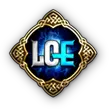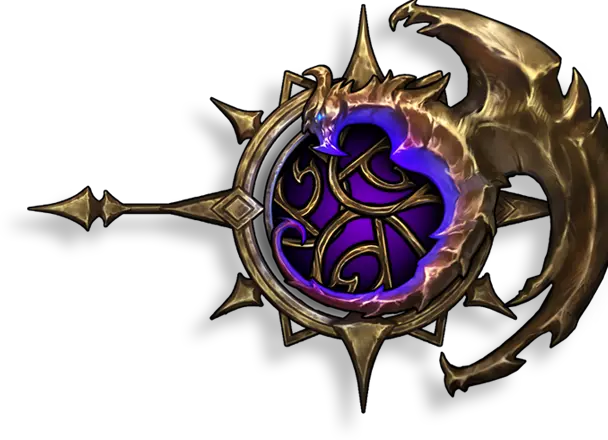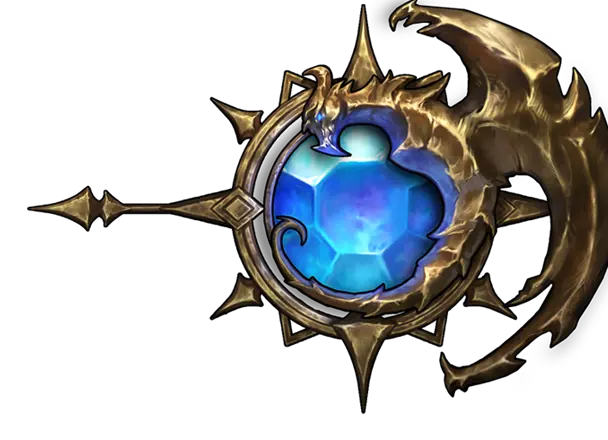Legends of Elysium vs Arkham Horror LCG
Arkham Horror LCG: Tactical and Strategic Analysis
Tactic in Arkham Horror LCG
Tactics in Arkham Horror LCG revolve around making crucial decisions within individual scenarios. Players must adapt to unpredictable events, manage limited resources, and mitigate threats as they arise during each phase of gameplay.
Key Tactical Features:
- Resource Management: Players must manage resources carefully, balancing between playing cards, investigating locations, and fighting monsters.
- Action Economy: With a limited number of actions per turn, players need to prioritise tasks such as investigating clues, engaging enemies, or supporting allies.
- Adaptability: The game’s chaos bag introduces a random element to skill tests, requiring players to prepare for both success and failure.
- Team Coordination: In multiplayer games, players must coordinate their actions, balancing individual strengths and weaknesses for the group’s benefit.
Strategy in Arkham Horror LCG
Strategic depth in Arkham Horror LCG emerges through deck-building and long-term campaign planning. Players need to think several steps ahead to ensure success across multiple interconnected scenarios.
Key Strategic Elements:
- Deck-Building: Players customise their investigator decks, selecting cards that complement their character’s abilities and the campaign’s challenges.
- Campaign Progression: Decisions made in one scenario can affect future scenarios, requiring players to think long-term about resource preservation and story outcomes.
- Character Development: As the campaign progresses, players can upgrade their decks by spending experience points, enhancing their effectiveness against tougher challenges.
- Risk Management: Players must decide when to push their luck versus when to retreat and regroup, weighing the consequences of failure.
Collectible Aspect in Arkham Horror LCG
The collectible nature of Arkham Horror LCG lies in its expanding pool of investigator packs, scenario packs, and deluxe expansions. Unlike traditional CCGs, it’s a living card game (LCG) where players know exactly what they are purchasing.
Key Collectible Features:
- Pre-Defined Expansions: Each expansion pack includes a fixed set of cards, ensuring players don’t rely on random boosters to complete collections.
- Unique Investigators: Each investigator has a distinct playstyle, encouraging players to collect various character packs to explore different strategies.
- Thematic Cards: The cards are rich with lore from the Arkham Horror universe, enhancing the narrative experience for collectors.
- Expanding Storylines: New expansions introduce fresh campaigns and mechanics, keeping the game dynamic and engaging for long-term players.
Trading Aspects in Arkham Horror LCG
While Arkham Horror LCG lacks a traditional trading economy, players can engage in card swaps within the community or purchase expansions to complete their collections.
Key Trading Features:
- Community Trading: Enthusiasts often trade or sell specific cards to help others complete their decks or collections.
- Secondary Market: Rare or out-of-print expansions can be valuable on the secondary market, making some cards collectible items in their own right.
- Custom Content: The community often creates custom scenarios and investigators, providing an unofficial trading avenue for fan-made content.
Gameplay Mechanics in Arkham Horror LCG
The gameplay mechanics of Arkham Horror LCG combine deck-building with narrative-driven scenarios, creating a cooperative and immersive experience.
Unique Gameplay Mechanics:
- Scenario-Based Gameplay: Players progress through interconnected scenarios, each with unique objectives, locations, and story outcomes.
- Skill Tests: Players perform skill tests by drawing tokens from a chaos bag, creating a balance between player agency and randomness.
- Investigator Roles: Each investigator has distinct abilities and stats, allowing players to adopt different roles, such as damage-dealer or clue-gatherer.
- Narrative Choices: Players’ decisions during scenarios influence the overarching story, leading to multiple possible endings.
What Sets Arkham Horror LCG Apart
- Narrative Focus: Unlike many TCGs/CCGs, Arkham Horror LCG prioritises storytelling, making each playthrough a unique narrative experience.
- Cooperative Play: The game is primarily cooperative, encouraging teamwork and coordination between players to overcome challenges.
- Expandable Content: The living card game model ensures a steady release of new content, keeping the game fresh and engaging.
- Immersive Theme: The game’s Lovecraftian horror theme is deeply woven into its mechanics, enhancing the overall experience for fans of the genre.
In conclusion, Arkham Horror LCG stands out from other TCG/CCG games by blending narrative-driven campaigns with cooperative gameplay, offering a uniquely immersive experience in the world of cosmic horror.
Legends of Elysium compared to Arkham Horror LCG – Gameplay Mechanics
In the world of tactical card games, Legends of Elysium carves a unique path by blending traditional TCG mechanics with the strategic depth of a board game, setting itself apart from the narrative-driven experience of Arkham Horror LCG. Where Arkham Horror immerses players in a rich, story-centric campaign through scenario-based challenges, Legends of Elysium emphasises terrain manipulation and tactical positioning. Its gameplay revolves around a hex-based board, where players must terraform lands to meet their deck’s requirements and gain control of the battlefield. Unlike Arkham’s reliance on randomness through a chaos bag, Legends of Elysium requires a more calculated approach to victory, focusing on resource management, board control, and long-term planning. The game’s mechanics demand mastery over multiple layers of strategy—balancing card play, land expansion, and special field bonuses—to secure victory. This board-centric dynamic adds a refreshing twist, making every decision impactful, where players are not just strategists, but architects of their path to triumph.
Legends of Elysium like Arkham Horror LCG – Similarities
Despite their differences in gameplay focus, Legends of Elysium and Arkham Horror LCG share core design principles that make both titles stand out in the TCG/CCG genre. Both games emphasise the importance of deck-building as a foundation for success, where players craft unique decks tailored to specific challenges and playstyles. Additionally, each game thrives on delivering a narrative-driven experience, albeit through different means—while Arkham Horror plunges players into story-rich campaigns, Legends of Elysium embeds its lore into card abilities, heroes, and board elements. Another parallel lies in their reliance on resource management; players must carefully allocate their in-game resources, whether it be investigating clues in Arkham Horror or managing mana and land control in Elysium. Both games also reward long-term strategic planning, where decisions made early can impact the outcome of a campaign or a match, making each move feel significant. Above all, both titles invite players to immerse themselves in a living world, where their choices shape the evolving narrative and gameplay outcomes, fostering a sense of agency and progression that resonates with TCG enthusiasts.
Legends of Elysium vs Arkham Horror LCG – Key Differences
While both Legends of Elysium and Arkham Horror LCG immerse players in worlds rich with narrative and strategy, their core gameplay philosophies diverge dramatically. Legends of Elysium stands as a hybrid of TCG and board game elements, where tactical control of a hex-based battlefield determines the outcome of each match. In contrast, Arkham Horror focuses more on a story-driven campaign, with players making narrative choices that affect the unfolding plot. Another fundamental difference lies in the player interaction; LoE thrives on competitive player-versus-player (PvP) modes, emphasising skill, strategic positioning, and resource management, whereas Arkham Horror is predominantly a cooperative experience, where players work together to unravel mysteries and overcome escalating threats. Additionally, Legends of Elysium integrates blockchain technology, giving players true ownership of their digital assets, while Arkham Horror follows a more traditional LCG model, with fixed card packs and expansions. Finally, LoE’s unique blend of board control mechanics and evolving meta-game strategies make it an ever-changing challenge, whereas Arkham Horror offers a more structured, episodic gameplay experience, deeply rooted in its rich Lovecraftian lore.
Tactic and Strategy in Legends of Elysium
In Legends of Elysium, tactical prowess and strategic foresight are the cornerstones of success. The game’s unique fusion of card play and board control demands players to think beyond their decks and consider the dynamic battlefield before them. Tactical decisions are made on a hex-based board, where each terrain tile offers distinct advantages or challenges. Players must terraform lands to fulfil card requirements, deploy units with precision, and control key hexes that can turn the tide of battle. Unlike traditional card games where luck often plays a major role, LoE rewards calculated risk-taking and adaptive planning. Strategically, the game offers multiple paths to victory: players can focus on board domination, resource management, or exploiting card synergies to outmanoeuvre their foes. Hero selection further deepens the strategic layer, as each hero brings unique abilities and passive effects that influence gameplay. Success in LoE hinges on balancing short-term tactical decisions with long-term strategic goals, making it a true test of a player’s wit, adaptability, and resilience.
Legends of Elysium as Alternative to Arkham Horror LCG
For those seeking a dynamic shift from the narrative-heavy, cooperative experience of Arkham Horror LCG, Legends of Elysium presents a bold, competitive alternative that blends strategy, skill, and tactical board control. While Arkham immerses players in pre-written campaigns with a focus on storytelling, LoE empowers players to craft their own tales of victory through sheer ingenuity and battlefield mastery. In contrast to the fixed expansions and cooperative gameplay of Arkham, LoE’s evolving meta and competitive player-versus-player (PvP) modes challenge gamers to continually adapt and refine their tactics. Furthermore, LoE offers a unique integration of blockchain technology, giving players true ownership of digital assets, a concept absent in Arkham Horror. By combining traditional TCG elements with a hex-based terrain system, Legends of Elysium caters to those who crave a more skill-driven and interactive experience. It’s an adventure where success isn’t dictated by luck or narrative paths, but by the player’s strategic acumen and adaptability—a perfect choice for heroes who seek to forge their legacy in an ever-evolving world.
Conclusion
Step into the realm of Legends of Elysium, where the battlefield is shaped by your strategic brilliance and the stories you weave become legendary. This game is more than a mere pastime—it’s a crucible for those who dare to master its tactical depths and rise as champions in a world brimming with fantasy lore and dynamic challenges. Unlike traditional card games bound by rigid rules or narratives, LoE invites you to embrace an ever-changing landscape, where each decision, each battle, and each hero choice carries the weight of destiny. If you consider yourself a tactician capable of adapting to evolving battlefields and crafting unique strategies, this is your call to arms. The hex-based board, immersive storylines, and true ownership of your digital assets create a gaming experience like no other. Are you ready to prove your mettle, lead your forces, and carve your legend into the tapestry of Elysium? Your journey begins now—embrace the challenge, outmanoeuvre your foes, and let the world bear witness to your rise as a true strategist.html
| Feature | Legends of Elysium (LoE) | Arkham Horror LCG |
|---|---|---|
| Gameplay Focus | Hex-based tactical board control combined with deck-building for competitive PvP matches. | Scenario-driven cooperative gameplay with a strong narrative focus. |
| Player Interaction | Primarily competitive PvP with evolving meta-game and strategic challenges. | Primarily cooperative with players working together to solve mysteries. |
| Deck-Building | Customisable decks that must synergise with terrain control and hero abilities. | Decks tailored to investigators’ abilities, evolving through campaign progression. |
| Strategy and Tactics | Short-term tactical decisions combined with long-term strategic planning. Success requires balancing resources, hero abilities, and board control. | Adaptability to unpredictable events, careful resource management, and team coordination within each scenario. |
| Collectible Aspect | Blockchain-based true asset ownership, including NFTs for cards and phygital items. | Pre-defined card packs with unique investigators and expansions. |
| Game Setting | Fantasy world of Elysium, rich in lore with heroes and stories evolving through player actions. | Lovecraftian horror universe with deeply immersive storytelling and evolving mysteries. |
| Unique Mechanics | Hexagonal board terrain control, hero customisation, and blockchain integration. | Chaos bag randomness, narrative choices affecting future scenarios, and investigator upgrades. |
| Ideal Player Type | Competitive strategists seeking a skill-based, evolving challenge with digital ownership benefits. | Story-driven players who enjoy cooperative problem-solving and immersive campaigns. |
.







